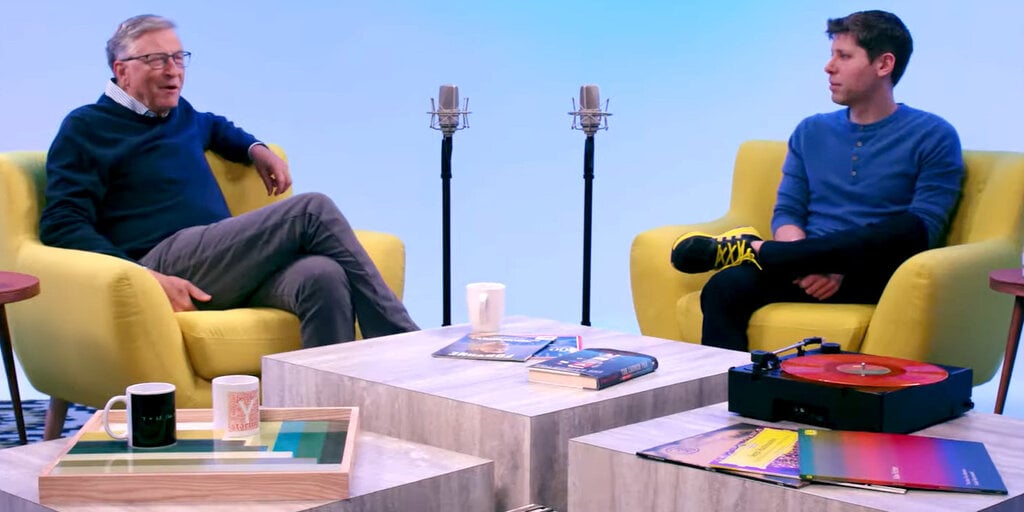AI Will Make Workers More Effective But Adapting to Its Rapid Spread Is ‘Scary’: Sam Altman
2 years ago admin
Sam Altman, securely back at the help of leading global artificial intelligence firm OpenAI, sees largely positive trade offs to technology that is racing quickly to match human intelligence.
“Although we are giving something up here, in some sense we are going to have things that are smarter than us,” he told tech mogul Bill Gates during a recent podcast conversation, “If we can get into this world of post scarcity, we will find new things to do.”
Altman and Gates engaged in an insightful dialogue that netted profound insights, peeling back the layers of Altman’s perspectives on AI and its trajectory. But first, Altman sought to reassure industry watchers following the ultimately unsuccessful corporate coup last year.
“A lot of people have remarked on the fact that the team has never felt more productive, or more optimistic, or better,” Altman said.
Altman touched upon the philosophical aspects of AI, contemplating a future where AI surpasses human intelligence. He has previously shared his concerns regarding the socioeconomic impact of AI, calling for better regulations that ensure a properly aligned AI development.
For Altman, AI will lead to a society in which workers will be able to do more things for the same amount of money, making them more productive for their employers.
“If you make a programmer three times more effective, it’s not just that they can write, they can do three times more stuff, it’s that they can… think of totally different things,” he said.
For Altman, this shift in the work dynamics that AI is causing is inevitable.
“The part that I find potentially a little scary is just the speed with which society is going to have to adapt and that the labor market will change,” he said.
Altman previously said that “the hypothetical idea that we already have done something really bad by launching ChatGPT” is something that bothers him. However, as worried as he may sound for the future of those affected by AI, OpenAI is relentlessly pushing the boundaries of its GPT models, presenting more powerful LLMs, a store for customized agents that could easily replace more jobs, and partnering with news sites to train its future GPT-5 model on their content.
As for the future of AI, Altman emphasized the need for significant leaps in AI’s cognitive skills. For him, multimodality (the capacity of a model to understand inputs that go beyond text, and contain images or videos for example) will play a key role in determining which model dominates the AI race
However, the quality of the outputs will be the differentiating factor, and “the most important areas of progress will be around reasoning ability… and also reliability,” he said.
Altman and Gates discussed the topic of regulatory and ethical constraints, exploring calls for a cohesive global regulatory framework for AI. Considering the expansive impact of advanced AI systems, he once again advocated for a balanced, international governance approach:
“For these… future extraordinarily powerful systems, we have been socializing the idea of a global regulatory body,” he said.
Altman’s reflections present a multifaceted outlook on AI’s future: a mix of hope and prudence, ingenuity and accountability. New players in the AI field are challenging OpenAI’s dominance, and regulators (just as everyday workers) are more worried than ever.
That doesn’t scare Alman.
“It’s, you know, both annoying, motivating and fun,” he said, “But it does push us to be better and do faster and do things faster.”















